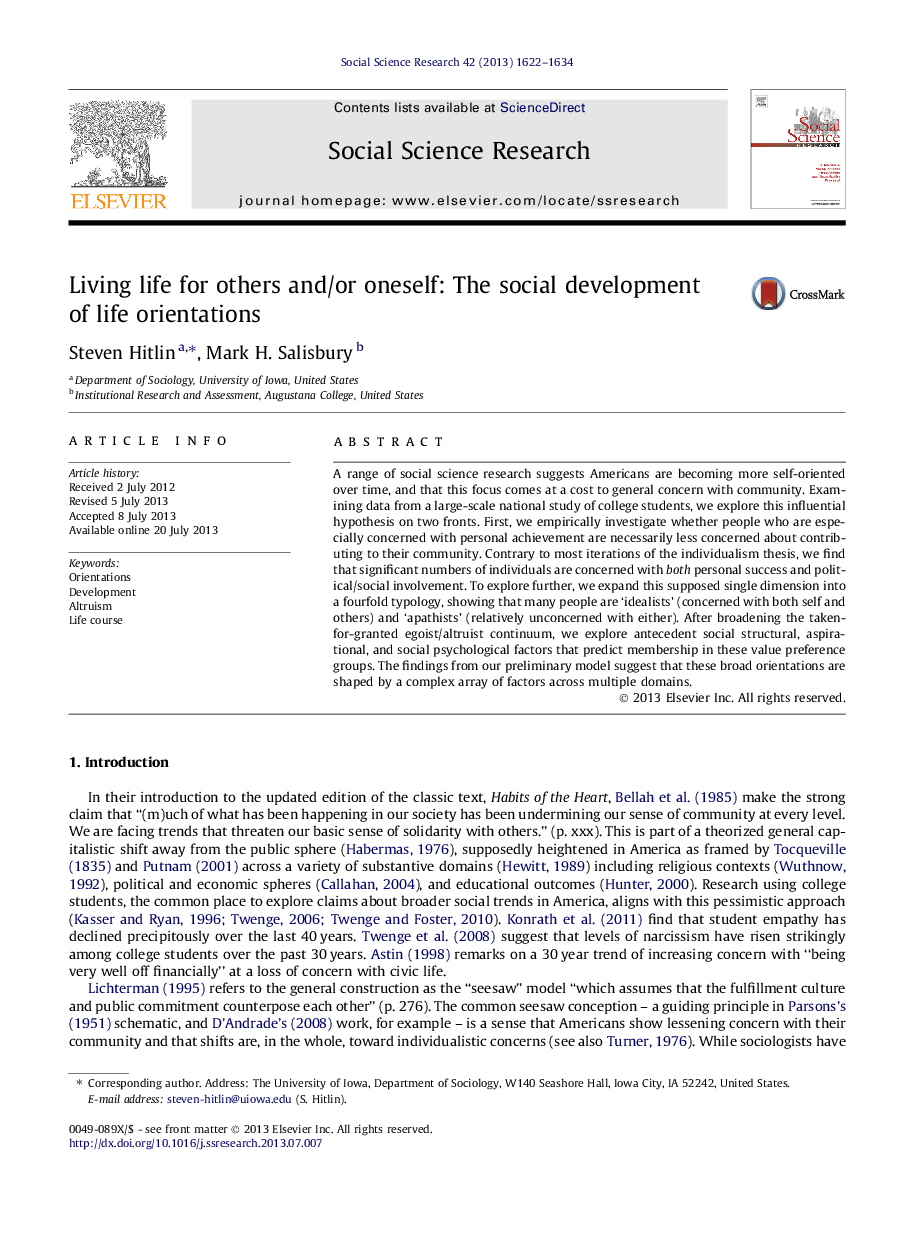| Article ID | Journal | Published Year | Pages | File Type |
|---|---|---|---|---|
| 955993 | Social Science Research | 2013 | 13 Pages |
•We address a core conceptualization of American worldviews.•We use novel data for a sociological audience.•Concern for personal success and community are not necessarily empirically opposed.•Class, race, and gender shape the adoption of these worldviews.
A range of social science research suggests Americans are becoming more self-oriented over time, and that this focus comes at a cost to general concern with community. Examining data from a large-scale national study of college students, we explore this influential hypothesis on two fronts. First, we empirically investigate whether people who are especially concerned with personal achievement are necessarily less concerned about contributing to their community. Contrary to most iterations of the individualism thesis, we find that significant numbers of individuals are concerned with both personal success and political/social involvement. To explore further, we expand this supposed single dimension into a fourfold typology, showing that many people are ‘idealists’ (concerned with both self and others) and ‘apathists’ (relatively unconcerned with either). After broadening the taken-for-granted egoist/altruist continuum, we explore antecedent social structural, aspirational, and social psychological factors that predict membership in these value preference groups. The findings from our preliminary model suggest that these broad orientations are shaped by a complex array of factors across multiple domains.
